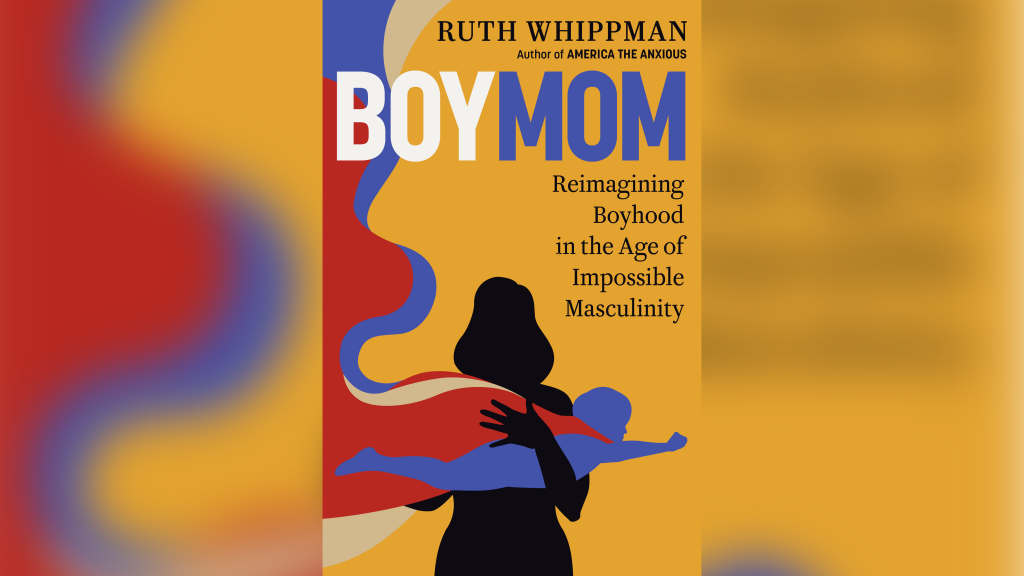The Metro: How do you teach positive masculinity to boys?
John Filbrandt July 25, 2024Author Ruth Whippman joined the show to discuss how to address sexism perpetuated by boys and men.

“Boymom: Reimagining Boyhood in the age of impossible masculinity" by Ruth Whippman.
How do you raise young men with healthy masculinity? It’s something author Ruth Whippman explores in her new book, “Boymom: Reimagining Boyhood in the age of impossible masculinity.”
According to the book, men today often feel they are without solutions for how to act in a range of situations, partly because parents and teachers don’t know what it means to raise boys who are balanced, confident and embrace their masculinity in a healthy way.
Whippman joined The Metro on Thursday to discuss how to address sexism perpetuated by boys and men. She also spoke about how society can create a more positive view of masculinity.
Subscribe to The Metro on Apple Podcasts, Spotify, NPR.org or wherever you get your podcasts.
“What I didn’t realize, and I found out while researching this book, was that a baby boy is born with his brain actually about a month behind baby girls’ in terms of right brain development. So that’s the part which deals with emotions, and emotional self regulation, and attachment and relationships,” Whippman said. “So baby girls are born a little bit more mature, a little bit more resilient and independent. Whereas boys need a little bit more support with those things. But because of the way that we think about boys, and we raise them, we actually do the complete opposite with them. They kind of need more of that kind of care, but we tend to see them as boys, as tough and sturdy and robust.”
Positive male role models and healthy masculinity themes are difficult to find in the media, Whippman said.
“Girls see so much content, which is all about emotions, and relationships,” Whippman said. “And I know this from having boys, if you just let the Netflix algorithm do its thing for a young boy and you don’t intervene, all they see is stories in which you know, there’s a hero, there’s a villain, a good guy and a bad guy, there’s a battle, someone dies and someone’s crowned a hero. So there’s none of that like relationship stuff, that like how you deal with real human beings, how you track somebody else’s emotions.”
Use the media player above to hear the full interview with Whippman.
More headlines from The Metro on July 25, 2024:
- One of the ways cities create more land opportunities for housing is through downzoning. Detroit City Council is working through this process now, changing the zoning of areas to prevent future heavy industry from impacting residents. Council Member Scott Benson joined the show to share more about the process.
- Boxing is one of the oldest contests in the summer Olympic Games. And just like Motown and its musical artists, Detroit has produced some of the world’s greatest in the sport. Many came through Emanuel Steward’s Kronk Boxing Gym. To discuss the impact of Kronk on Detroit and the sport, former professional boxer Tarick Salmaci and Kronk Chief Operating Officer John Lepak joined The Metro.
- Detroit’s Lexus Velodrome has had a hand in supporting the training of track cycling Olympian and Canadian Dylan Bibic. Executive Director of the Lexus Velodrome, Dale Hughes, joined the show to discuss the sports complex and what they offer the community.
Listen to The Metro weekdays from 11 a.m. to noon ET on 101.9 FM and streaming on-demand.
Trusted, accurate, up-to-date.
WDET strives to make our journalism accessible to everyone. As a public media institution, we maintain our journalistic integrity through independent support from readers like you. If you value WDET as your source of news, music and conversation, please make a gift today. Donate today »Author
-
Jack Filbrandt is an assistant producer on WDET's daily news, arts and culture program, The Metro. He grew up on Lake Michigan and has called Detroit home for seven years. He's also a Detroit Documenter, covering local government meetings in the city. He previously worked for Wayne State's student newspaper, The South End, and The Battering Ram.
